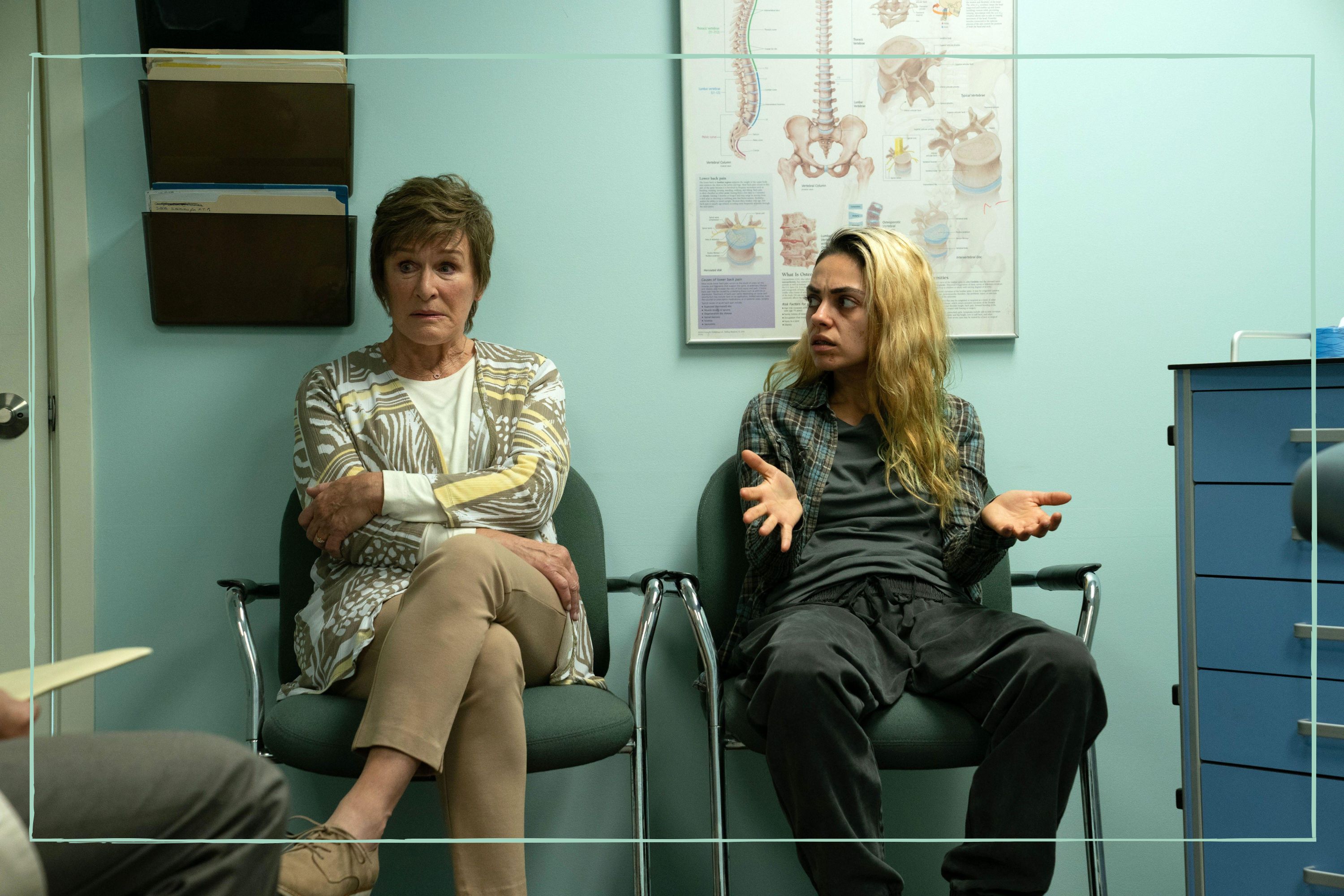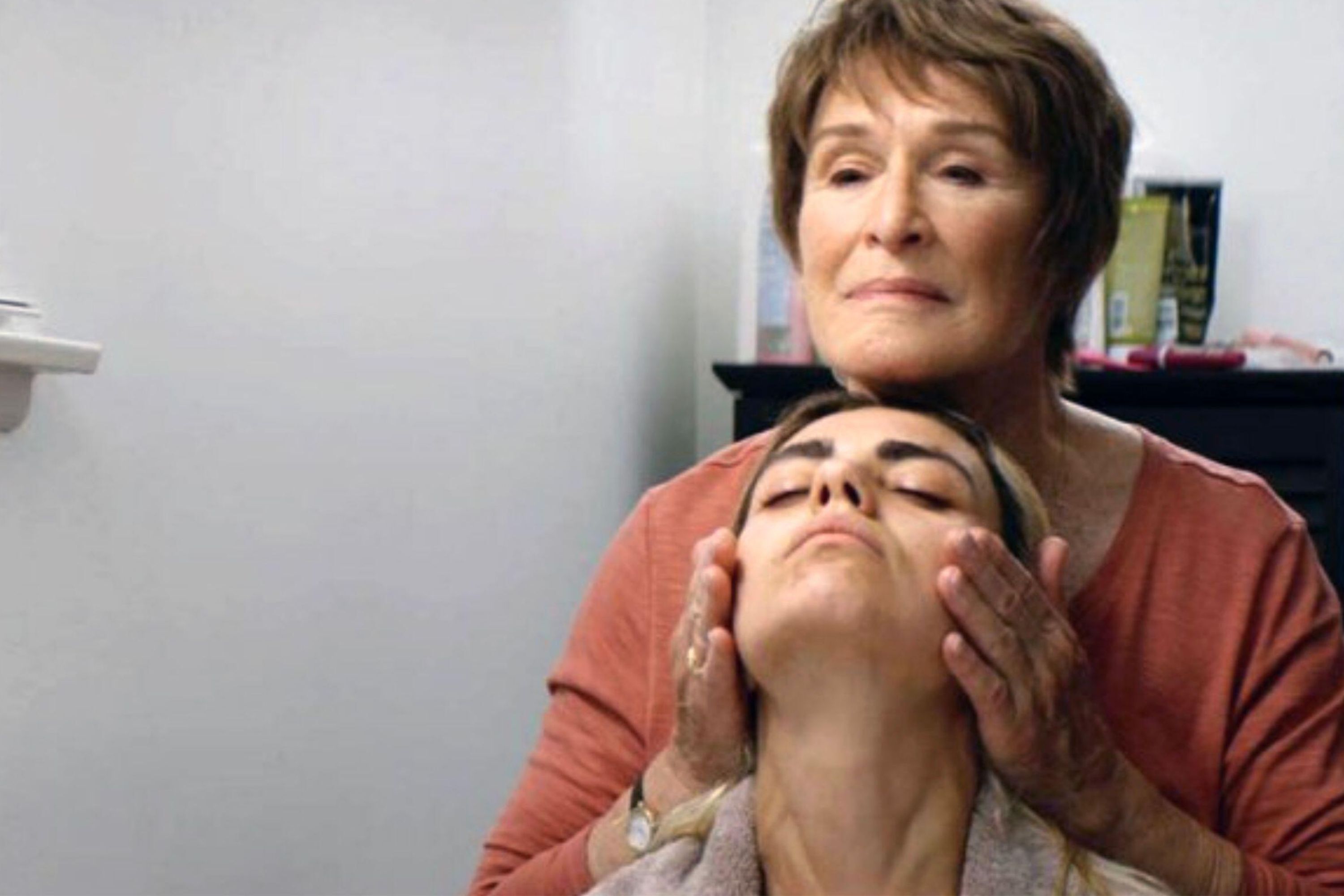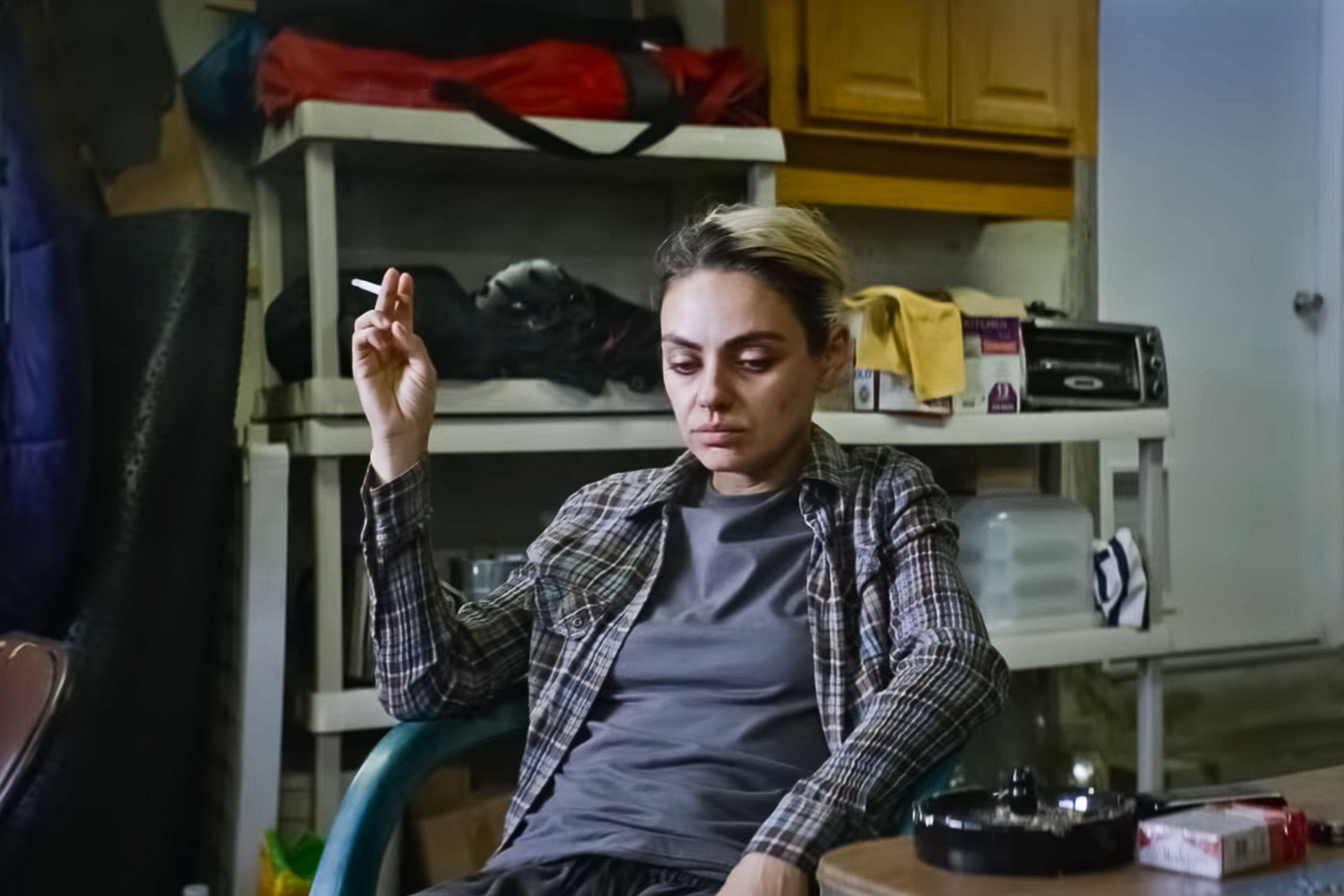Is Four Good Days a true story? Inspiration behind the Mila Kunis film now streaming on Netflix
There's a heartbreaking story behind the hard-hitting film


As the Oscar nominated film arrives on Netflix, there has been a surge of interest in the story behind Four Good Days.
Four Good Days stars Mila Kunis as Molly, an addict for over a decade. Molly has lost custody of her children, and starts an attempt at sobriety for the fifteenth time. Glenn Close stars as her Mother, Deb, who helps her desperate daughter through recovery. The film had its world premiere at the Sundance Film Festival on January 25, 2020. Following a limited cinematic in April 2021, the movie has arrived on Netflix. This has caused a surge in viewers, and a pique in interest behind the film's origin story. Read on to find out if Molly was real, and what inspired the script for Four Good Days.
Elsewhere on Netflix, viewers have been asking is Dog Gone based on a true story? A family with a tragic history lose their dog, and it's a race against time to find him. The Swimmers true story is one that will stay with you for weeks after the credits roll - it offers astonishing insight into the plight of refugees. For something light hearted, the Bank of Dave true story will truly warm hearts as one man sets out on a quest to beat the banks.
Is Four Good Days a true story?
Yes, Four Good Days is based on based upon journalist Eli Saslow's 2016 Washington Post article "How's Amanda? A Story of Truth, Lies and an American Addiction". The real Amanda Wendler struggled with a decade of addiction, before moving in with her parents to get clean.
Amanda's story began when she was involved in a snowmobile accident at the age of 16. She was prescribed Vicodin for the pain, which was the beginning of her addiction. Speaking to Fox News, she said "And it just took off from there. I kept going back to the doctor more and more…before you know it, I was up to 180 a month, seeing two or three different doctors a month. That went on until… I couldn't find the pain pills anywhere – I turned to heroin. I lost everything."
According to Saslow's article, Amanda was 31, and an admitted opiate addict for 11 years, five months and 14 days. She'd spent every penny she had trying to get clean, and every intervention she'd tried, had failed. Having moved in with mother and stepfather, Amanda was 12 days into another sobriety attempt that had lasted 12 days - the longest she had ever managed to succeed for. The relapse rate for heroin addiction has been suggested to be up to 97 percent, with the average user dying within 10 years - Amanda’s addiction was now over that time.
For this attempt, she'd been through the vomiting and shakes that came with the withdrawal process, even scraping a bathroom floor to search for leftover traces of heroin. She had no job, and had never finished school. A dentist had removed every single one of her teeth, which had decayed from self neglect. Her 9-year-old twin sons lived with their father, and contact with them was limited. Her phone was constantly pinging with messages from a dealer offering testers in the hope she'd become a regular customer again.
Parenting advice, hot topics, best buys and family finance tips delivered straight to your inbox.
Amanda had decided to pursue a new treatment for heroin, a monthly injection of naltrexone that blocks the effects of opiates on the brain - getting high becomes impossible. However, the injection could be dangerous if she still had opiates in her system. She'd been told to stay clean for for at least two weeks, which she was when moving in with her mother, and her appointment for the injection was four days away - the basis for the film's name. The film follows what happened to Amanda in that time, and what her mother did to help.
At the time of the 2016 article on Amanda, pain, longing and despair were driving an historic opiate epidemic. Statistics suggested 350 people began using heroin every day, resulting in 4105 hospital visits and 79 deaths. Drug overdoses were the leading cause of injury-related death in the US, higher than guns, car crashes and suicides. Most addicts were found to have been introduced to heroin through prescription pain pills offered by Doctors, with 200 million opiate prescriptions filled each year.

Does Four Good Days have a happy ending?
Four Good Days does have a positive ending. After a relapse that nearly killed her, there is a time jump four months into the future and Molly has remained clean.
She is still living with her mother, but looks healthy and has continued her recovery process with no further relapses. One of the final conversations Molly and Libby have, concerns Molly telling her mother she postponed her next Vivitrol dose for after the coming weekend. This insinuates she could be planning to use at the weekend, and her mother's concern is evident. However, she has leant that Molly is responsible for her own actions, and she's now done everything she can for her.
Refusing to comment on the change of her injection date, could insinuate Libby finally trusts Molly to do the right thing. Molly is also seeing more of her children, and she happily reports that the children are doing well, and their father is ready for her to have more contact. Libby compliments her appearance, and Molly looks radiant.

Where is Amanda Wendler now?
Not too much is known about what Amanda is doing now, but she has said that her life is beautiful, and she appears to be well in interviews.
In an interview with Fox News in 2021, she said "My life is beautiful today. So there is another side to this." She also told Entertainment Today when the film was made, "What I hope people take away from this is that we have to take the stigma and shame off of addiction and bring some empathy and compassion into it and realize that it's an illness. It's a disease and it can be treated. And we do recover," Wendler says. "My life today, it's so peaceful. I can breathe. I just hope people take away from this movie that you can do this. You can recover."
A post shared by Four Good Days (@fourgooddays)
A photo posted by on
Amanda and her mother Libby were also in Los Angeles for the Oscars weekend - the film's lead single Somehow You Do was nominated for Best Original Song. While there, they got to meet some of those involved in the film. A picture of them from the Four Good Days Instagram account was captioned "Today Diane Warren got to meet Libby and Amanda, the real life mother and daughter played by Glenn Close and Mila Kunis in #FourGoodDays. Perfect timing that they’re in LA the same weekend as the Oscars!!" Here, Amanda remained looking healthy and well.
Four Good Days: Reviews
Reviews for Four Good Days appear mixed, with the film currently holding a 55% Critic score and 81% audience score on review aggregator site, Rotten Tomatoes.
Sandie Angulo Chen from Common Sense Media had praise for the film. She said "Director Rodgrigo Garcia knows how to bring out the nuances in his actors' performances, and audiences looking for a study in acting will be rewarded, even if the movie is a tad formulaic."
Steven Warner from In Review Online, was not impressed. He said "The film itself opts for an ending of glorified wish-fulfillment, a development that, while not entirely surprising, still reeks of a filmmaker hedging his bets. Four Good Days ultimately amounts to 100 middling minutes, and wallows in the type of schmaltz that would make even Diane Warren herself wince."
An audience member said "I thought this film was beautiful, from my view it accurately portrayed how difficult it is to stay clean when you're addicted, and how easy it becomes to lie to those around you. From the mothers perspective, I know my grandmother was in a similar situation with her son and his addiction was all consuming for her. Glenn Close did an incredible job of portraying the unrelenting passion and need for a child who's addicted to just get well."
Another added "While this film has some brilliant acting, I feel the storyline is not very accurate with regards an addicts life. I understand that this is based on a true story and it's always wonderful when someone can overcome addiction but as it was stated in the movie, 97% don't have this kind of outcome. As I watched the last scenes unfold, I was preparing myself for the aftermath of Molly but got the Hollywood ending. Addiction is a real crisis in this country and I was hoping that a big movie like this might bring some light on this terrible affliction but just got the same old same old."
Related Netflix Features:
- You season 4 filming locations: Where was the latest season of the Netflix show filmed?
- You season 3 recap: Everything that happened in the third season of the Netflix thriller ahead of season 4 release
- Lockwood & Co. ending explained: Everything that happened in the finale of the Netflix detective thriller
- Will there be a season 2 of Lockwood & Co? Speculation and everything we know so far about the return of the Netflix mystery thriller
- Will there be a That ‘90s Show season 2? Speculation, and everything we know so far
- Did Def Leppard play for Bank of Dave? Real story behind the band’s appearance in the Netflix film
- Ginny & Georgia season 1 recap: Everything that happened in the first season ahead of the season 2 release
- Ginny & Georgia season 2 ending explained: Everything that happened in the finale of the Netflix family drama
- Is there a Ginny & Georgia season 3? Speculation, and everything we know about a potential return for the Netflix hit show
Video of the Week

Lucy is a mum-of-two, multi-award nominated writer and blogger with six years’ of experience writing about parenting, family life, and TV. Lucy has contributed content to PopSugar and moms.com. In the last three years, she has transformed her passion for streaming countless hours of television into specialising in entertainment writing. There is now nothing she loves more than watching the best shows on television and sharing why you - and your kids - should watch them.